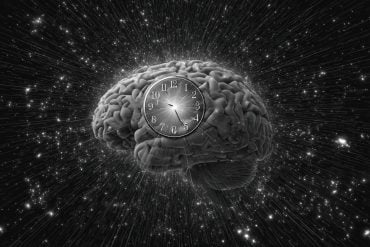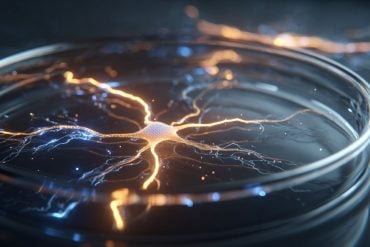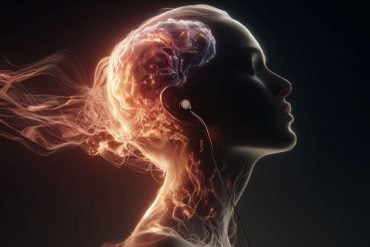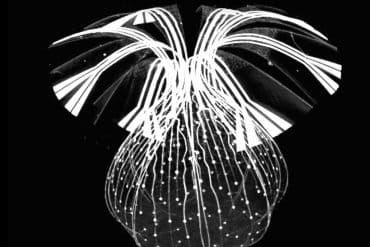A study led by Johns Hopkins Medicine researchers suggests that awakening several times throughout the night is more detrimental to people’s positive moods than getting the same shortened amount of sleep without interruption.
As they report in the November 1 issue of the journal Sleep, researchers studied 62 healthy men and women randomly subjected to three sleep experimental conditions in an inpatient clinical research suite: three consecutive nights of either forced awakenings, delayed bedtimes or uninterrupted sleep.
Participants subjected to eight forced awakenings and those with delayed bedtimes showed similar low positive mood and high negative mood after the first night, as measured by a standard mood assessment questionnaire administered before bedtimes. Participants were asked to rate how strongly they felt a variety of positive and negative emotions, such as cheerfulness or anger.
But the researchers say significant differences emerged after the second night: The forced awakening group had a reduction of 31 percent in positive mood, while the delayed bedtime group had a decline of 12 percent compared to the first day. Researchers add they did not find significant differences in negative mood between the two groups on any of the three days, which suggests that sleep fragmentation is especially detrimental to positive mood.

“When your sleep is disrupted throughout the night, you don’t have the opportunity to progress through the sleep stages to get the amount of slow-wave sleep that is key to the feeling of restoration,” says study lead author Patrick Finan, Ph.D., an assistant professor of psychiatry and behavioral sciences at the Johns Hopkins University School of Medicine.
Although the study was conducted on healthy subjects with generally normal sleep experiences, Finan says the results are likely to apply to those who suffer from insomnia.
Frequent awakenings throughout the night are common among new parents and on-call health care workers, he says. It is also one of the most common symptoms among people with insomnia, who make up an estimated 10 percent of the U.S. adult population. “Many individuals with insomnia achieve sleep in fits and starts throughout the night, and they don’t have the experience of restorative sleep,” Finan says.
Depressed mood is a common symptom of insomnia, Finan says, but the biological reasons for this are poorly understood. To investigate the link, he and his team used a test called polysomnography to monitor certain brain and body functions while subjects were sleeping to assess sleep stages.
Compared with the delayed bedtime group, the forced awakening group had shorter periods of deep, slow-wave sleep. The lack of sufficient slow-wave sleep had a statistically significant association with the subjects’ reduction in positive mood, the researchers say. They also found that interrupted sleep affected different domains of positive mood; it reduced not only energy levels, but also feelings of sympathy and friendliness.
Finan says the study also suggests that the effects of interrupted sleep on positive mood can be cumulative, since the group differences emerged after the second night and continued the day after the third night of the study. “You can imagine the hard time people with chronic sleep disorders have after repeatedly not reaching deep sleep,” Finan says. However, he says, further studies are needed to learn more about sleep stages in people with insomnia and the role played by a night of recovering sleep.
Other authors of the study are Phillip J. Quartana of the Center for Military Psychiatry and Neuroscience, Walter Reed Army Institute of Research; and Michael T. Smith of the Johns Hopkins University School of Medicine, who was the principal investigator of the study.
Funding: This research was supported by grants from the National Institute on Drug Abuse (grant number K23 DA035915), the National Institute of Nursing Research (grant number P30 NR014131), and the National Institute of Neurological Disorders and Stroke (grant numbers R21 NS051771 and K23 NS47168).
Source: Shawna Williams – Johns Hopkins University
Image Credit: The image is in the public domain
Original Research: Abstract for “The Effects of Sleep Continuity Disruption on Positive Mood and Sleep Architecture in Healthy Adults” by Patrick H. Finan, PhD; Phillip J. Quartana, PhD; and Michael T. Smith, PhD in Sleep. Published online October 2015 doi:10.5665/sleep.5154
Abstract
The Effects of Sleep Continuity Disruption on Positive Mood and Sleep Architecture in Healthy Adults
Objective:
The purpose of this study was to test an experimental model of the effects of sleep continuity disturbance on sleep architecture and positive mood in order to better understand the mechanisms linking insomnia and depression.
Design:
Participants were randomized to receive 3 consecutive nights of sleep continuity disruption via forced nocturnal awakenings (FA, n = 21), or one of two control conditions: restricted sleep opportunity (RSO, n = 17) or uninterrupted sleep (US, n = 24).
Setting:
The study was set in an inpatient clinical research suite.
Participants:
Healthy, good-sleeping men and women were included.
Measurement and Results:
Polysomnography was used to measure sleep architecture, and mood was assessed via self-report each day. Compared to restricted sleep opportunity controls, forced awakenings subjects had significantly less slow wave sleep (P < 0.05) after the first night of sleep deprivation, and significantly lower positive mood (P < 0.05) after the second night of sleep deprivation. The differential change in slow wave sleep statistically mediated the observed group differences in positive mood (P = 0.002).
Conclusions:
To our knowledge, this is the first human experimental study to demonstrate that, despite comparable reductions in total sleep time, partial sleep loss from sleep continuity disruption is more detrimental to positive mood than partial sleep loss from delaying bedtime, even when controlling for concomitant increases in negative mood. With these findings, we provide temporal evidence in support of a putative biologic mechanism (slow wave sleep deficit) that could help explain the strong comorbidity between insomnia and depression.
“The Effects of Sleep Continuity Disruption on Positive Mood and Sleep Architecture in Healthy Adults” by Patrick H. Finan, PhD; Phillip J. Quartana, PhD; and Michael T. Smith, PhD in Sleep. Published online October 2015 doi:10.5665/sleep.5154






